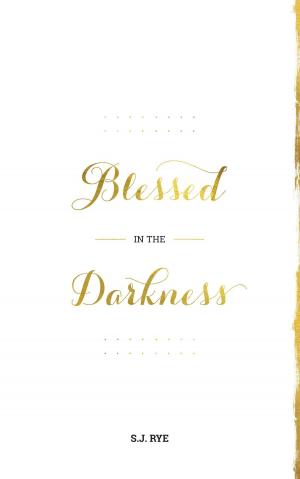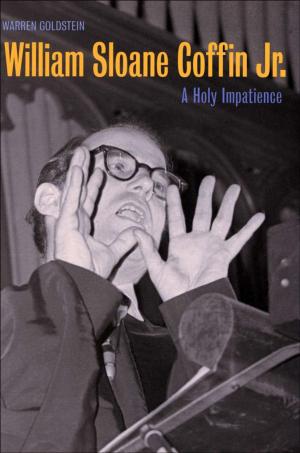| Author: | Paul E. Dinnis | ISBN: | 9780983301011 |
| Publisher: | Paul E. Dinnis | Publication: | March 9, 2012 |
| Imprint: | Smashwords Edition | Language: | English |
| Author: | Paul E. Dinnis |
| ISBN: | 9780983301011 |
| Publisher: | Paul E. Dinnis |
| Publication: | March 9, 2012 |
| Imprint: | Smashwords Edition |
| Language: | English |
Joshua Hinton is a native American, born in Cawker City, Kansas. His father dies a year or so after Joshua graduates from high school. He foregoes college to operate the family hardware and implement company founded by his father, and as the older son, to care for his mother and brother.
A dozen years later, Joshua attends a men’s weekend religious retreat held at a Kansas lake. He has what to him is a spiritual awakening, an experience he interprets as having personally felt
the presence of “God’s Holy Spirit.”
His brother is capable of continuing the family business and care for his mother, so Joshua leaves home and embarks on a “serve the Lord” career.
This is just another Save the World religious story? No, it is different, significantly different, in a manner virtually all Americans can identify with and find inspiration in.
Why? Because, while Joshua’s story is fiction, the time-line is very recent, and the geographic settings in the USA are real . . . Swope Park in Kansas City, Happy Hollow Golf Course in Omaha, Byrd Park in Richmond.
The unique thrust of the book is that the story about Joshua parallels the Bible’s accounts of the life of Jesus Christ. The reader will identify the Joshua incidents and remember how the Bible recorded them. But this “new telling” in familiar settings and circumstances of the United States can yield a new awareness and deeper appreciation of the impact Jesus had for humanity. (It is non-denominational, even “universal.”)
Here, Joshua travels the country, and the “spirit of God’s love” is evidenced in all of his appear-
ances: in his Sermon on the Mount, at the Red Rock Park near Denver, in a home visit
near Detroit, at a high school student meeting in Los Angeles. A sports columnist lauds him,
as does a housewife in her article in a woman’s magazine.
Joshua’s “Twelve” constitute his Board of Directors. They include Peter (he has a Southern
drawl accent), James & John, Doubting Thomas, Judas. – and two women, one of them a Black
civic servant in Chicago. Also, two auto union stewards and an Amarillo cattleman.
Joshua doesn’t upset money-changing tables as Jesus did, but disrupts a line of protesters and tears up their placards, in Richmond, Va. Soon after, he is kidnapped and murdered. Jonas
is questioned but never found guilty. The FBI hounds him, and he commits suicide by jumping
overboard off a Staten Island, NY ferry boat.
The Joshua memorial service in Kansas is “different.” But, unique, emotional and unusually memorable, too.
Joshua Hinton is a native American, born in Cawker City, Kansas. His father dies a year or so after Joshua graduates from high school. He foregoes college to operate the family hardware and implement company founded by his father, and as the older son, to care for his mother and brother.
A dozen years later, Joshua attends a men’s weekend religious retreat held at a Kansas lake. He has what to him is a spiritual awakening, an experience he interprets as having personally felt
the presence of “God’s Holy Spirit.”
His brother is capable of continuing the family business and care for his mother, so Joshua leaves home and embarks on a “serve the Lord” career.
This is just another Save the World religious story? No, it is different, significantly different, in a manner virtually all Americans can identify with and find inspiration in.
Why? Because, while Joshua’s story is fiction, the time-line is very recent, and the geographic settings in the USA are real . . . Swope Park in Kansas City, Happy Hollow Golf Course in Omaha, Byrd Park in Richmond.
The unique thrust of the book is that the story about Joshua parallels the Bible’s accounts of the life of Jesus Christ. The reader will identify the Joshua incidents and remember how the Bible recorded them. But this “new telling” in familiar settings and circumstances of the United States can yield a new awareness and deeper appreciation of the impact Jesus had for humanity. (It is non-denominational, even “universal.”)
Here, Joshua travels the country, and the “spirit of God’s love” is evidenced in all of his appear-
ances: in his Sermon on the Mount, at the Red Rock Park near Denver, in a home visit
near Detroit, at a high school student meeting in Los Angeles. A sports columnist lauds him,
as does a housewife in her article in a woman’s magazine.
Joshua’s “Twelve” constitute his Board of Directors. They include Peter (he has a Southern
drawl accent), James & John, Doubting Thomas, Judas. – and two women, one of them a Black
civic servant in Chicago. Also, two auto union stewards and an Amarillo cattleman.
Joshua doesn’t upset money-changing tables as Jesus did, but disrupts a line of protesters and tears up their placards, in Richmond, Va. Soon after, he is kidnapped and murdered. Jonas
is questioned but never found guilty. The FBI hounds him, and he commits suicide by jumping
overboard off a Staten Island, NY ferry boat.
The Joshua memorial service in Kansas is “different.” But, unique, emotional and unusually memorable, too.















